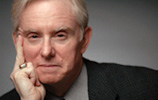As the population across the world has aged, new concerns have emerged. Longevity now appears to be something to be expected in societies that have enough affluence and stability to provide public health services, disease prevention and control, and health care. To give you a little perspective:
For all races in the U.S., life expectancy at birth in 1900 was 47.3; in 1950 it was 68.2, and in 2005 it was 77.5 (with females 80.4 and males 75.2; my source is: The Centers for Disease Control, http://www.cdc.gov/nchs/data/hus/hus08.pdf#026). These are rather extraordinary numbers. Using these data, in the United States, you can expect to live much longer than your great-grand or grand parents. What does this mean for us?
For our purposes here, let me point out that in addition to the need for greater financial resources, cognitive, social/emotional and physical well-being will also be essential in the years following retirement (which could last 20 or more years!). Preparation for this period of adulthood will need to begin much earlier so that one is able to take advantage of the significant changes that accompany retirement.
Let’s use an example: If you are working, think about your average day: you have a schedule, responsibilities, and individuals with whom you interact. Work, in one sense, is about structure – social, motivational, and goal-directed in real time. This complex structure mobilizes many of our abilities that include cognition, sociability, and physical endurance. If you aren’t working, what will replace this complex structure? How will you stay motivated to learn or perform, develop new relationships, stay physically fit over a decade or 2?
If you find that my perspective on cognitive fitness makes sense to you, and you are considering psychotherapy, send me an email or give me a call and we can schedule an appointment.
Contact Houston Psychologist Dr. Robert Reichlin at 281-813-7202; Drreichlin@robertreichlinphd.com
